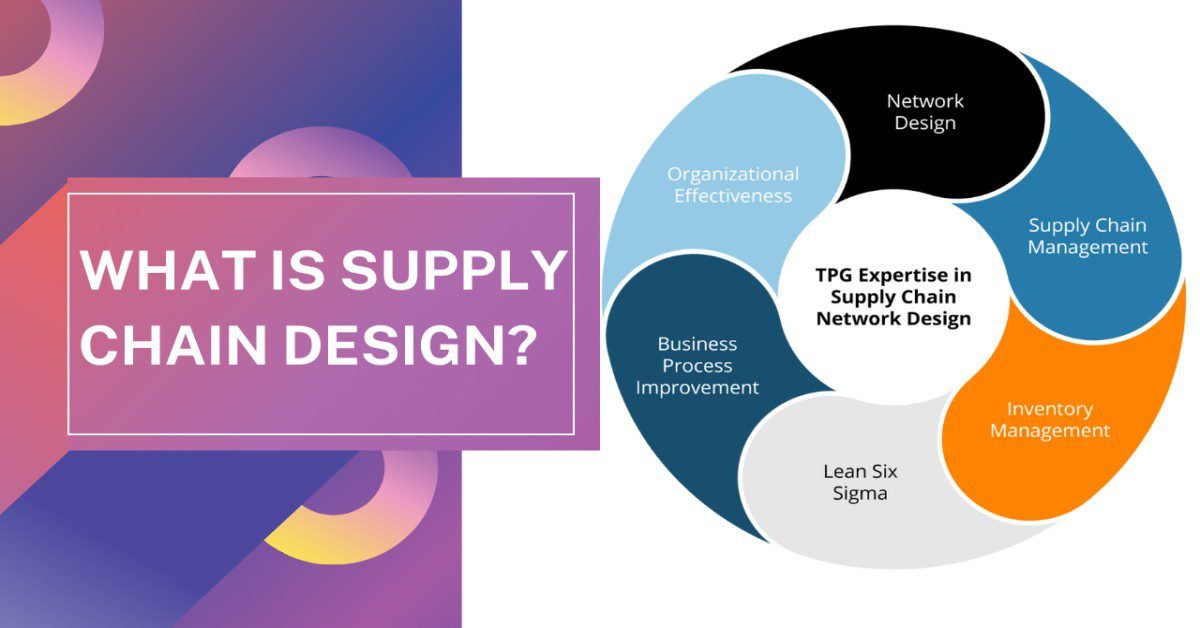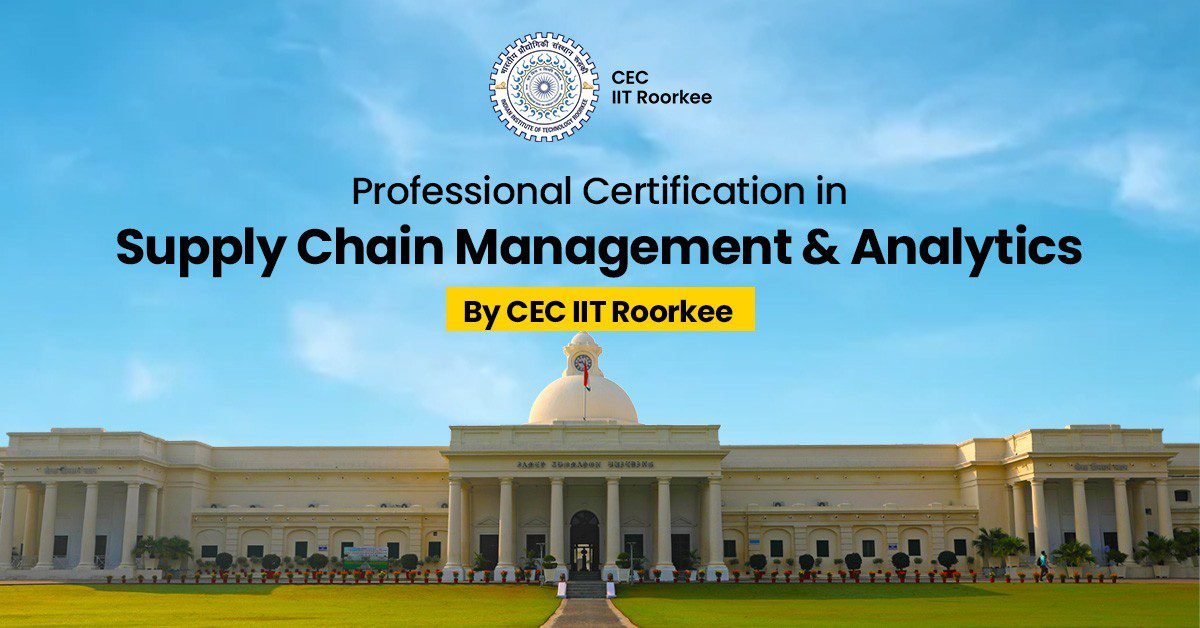Last updated on April 2nd, 2024 at 09:12 am
An effective supply chain management system is crucial for any organisation. Removing delays and accelerating the delivery process can revolutionise an organisation and eventually save consumers money and time. In this blog post, we’ll look at some of the most important aspects of supply chain management, talk about the job of a supply chain analyst, and offer advice on how you can build a successful and sustainable supply chain career.
What is Supply Chain Management?
Supply Chain Management (SCM) is the internal system of business companies that manage the flow of goods. It encompasses the processes involved from the sourcing of raw materials to the delivery of the final product to consumers. The key phases of supply chain management include planning, execution, production, marketing, distribution, finance management, and customer service.
The Importance of Supply Chain Management
For every company, a strong supply chain management system is a vital asset. By minimising delays and expediting the delivery process, it has the ability to alter processes, eventually saving the business and its clients money and time.
Operations and finances are two crucial topics that are covered by supply chain management. Businesses may simplify logistics, improve production processes, and guarantee prompt client delivery through excellent supply chain management. This ultimately improves client loyalty and satisfaction.
It is impossible to exaggerate the importance of data and analytics breakthroughs in supply chain management in the current digital era. Supply chain experts may make wise decisions and proactively handle difficulties with the help of cutting-edge technology and data-driven insights.
Supply chain experts may make wise decisions and proactively handle difficulties with the help of cutting-edge technology and data-driven insights. Companies may increase operational efficiency overall and have a deeper grasp of client demand patterns by using data.
What is the Role of Data and Analytics in Supply Chain Management?
Supply Chain Management relies heavily on data and analytics advancements to optimise processes and enhance decision-making. By harnessing the power of data, supply chain analysts can create predictions and insights regarding customer demand, enabling companies to make proactive decisions and stay ahead of their competitors. Through data analysis, supply chain management becomes a dynamic and responsive field that drives efficiency, cost savings, and customer satisfaction.
The interconnectedness of supply chain management necessitates a broader knowledge encompassing various fields related to the system. While it primarily concerns the management of goods, it also involves people management, making interpersonal skills essential for success in this field. Supply chain professionals need to understand not only the technical aspects of logistics and operations but also the strategic aspects of finance, marketing, and customer service.
Supply chain management is a complex and multifaceted discipline that requires a comprehensive understanding of the flow of goods and services. With the increasing importance of data and analytics, supply chain analysts play a critical role in optimising processes, driving business growth, and improving customer satisfaction.
What is the Role of Sourcing in Supply Chain Management?
The idea of sourcing is crucial in the context of supply chain management. Finding and choosing suppliers who can deliver the essential raw materials, components, or services for production is known as sourcing. Effective sourcing techniques aid in cost reduction, quality assurance, and risk reduction. It guarantees that the appropriate resources are acquired from dependable sources at the appropriate time, assisting in maintaining efficient operations and meeting client expectations.
What is Supply Chain Design?

A crucial component of efficient supply chain management is supply chain design. It entails outlining the whole network of the supply chain, including how money, information, and things move through it. Businesses may eliminate bottlenecks, increase productivity, and react quickly to market needs by optimising the supply chain design. Organisations can anticipate possible hazards and create backup plans to lessen interruptions thanks to supply chain design.
The Future of Supply and Demand
The idea of supply and demand will continue to develop in the future. In order to manage changes in client demand, market trends, and overall economic situations, businesses must remain proactive and adaptive. This calls for a thorough comprehension of supply chain dynamics as well as the capacity to estimate demand, modify production levels, and optimise using data and analytics.
The Rise of FinTech in Supply Chains
The growth of FinTech in supply chains is notable from the perspective of developing technologies. Traditional supply chain operations are changing as a result of advances in financial technology that make transactions quicker, more secure, and more transparent. Accepting these developments may result in better financial management and more effective supplier chain ecosystem collaboration.
Supply chain management, to sum up, is a critical activity that promotes operational excellence, client happiness, and monetary success. Businesses may improve efficiency, remain ahead in the competitive business environment of today, and optimise their supply chain operations by leveraging data, analytics, and emerging technology. Businesses must fully grasp the value of supply chain management and make the strategic, human, and technological investments necessary to prosper in the dynamic and ever-evolving world of supply chain management.
How can you get Started in the Field of Supply Chain Management?
In today’s digital age, supply chain management systems generate a vast amount of data. This has led to an increased demand for skilled professionals known as Supply Chain Analysts. These analysts play a crucial role in analysing the performance of the supply chain system, identifying problems, finding solutions, and developing strategies to improve the overall business operations.
Is Supply Chain Management a Good Career Option?

Supply chain management is indeed a gratifying and promising career with a plethora of opportunities for aspiring professionals. Additionally, the demand for supply chain professionals is on the rise, presenting excellent job prospects and competitive salaries. Moreover, the dynamic nature of the industry provides continuous learning and growth opportunities, making it an exciting and fulfilling career path for individuals with a passion for problem-solving, strategic thinking, and operational excellence.
The field of supply chain management offers exciting career opportunities for individuals with the right skills and knowledge to navigate the dynamic and ever-evolving landscape of global business.
Furthermore, interpersonal skills play a vital role in supply chain management. You will be collaborating with various stakeholders, including suppliers, manufacturers, distributors, and customers. Effective communication, teamwork, and problem-solving skills are key to building strong relationships and ensuring smooth operations throughout the supply chain.
While starting your career as a supply chain analyst, gaining 1-2 years of experience combined with a Master’s degree can significantly boost your prospects. This practical experience will provide you with valuable insights into real-world supply chain challenges and help you apply your theoretical knowledge effectively.
Since experience is important for a successful supply chain management career, it is beneficial to enrol in courses that offer placement assistance. This can provide you with opportunities to gain industry experience and establish connections within the field, enhancing your chances of securing a desirable position.
In conclusion, becoming a supply chain analyst requires a combination of formal education, analytical skills, and practical experience. By enrolling in a reputable certificate course in Supply Chain Management, such as the one offered by IIT Roorkee, you can acquire the necessary qualifications and knowledge to kickstart your career. Remember, continuous learning, adaptability, and a passion for problem-solving are key to thriving in the ever-evolving world of supply chain management.
Supply Chain Analyst: Careers, Roles and Growth

In the world of supply chain management, the role of a Supply Chain Analyst is highly sought after and in demand. Supply Chain Analysts play a crucial role in analysing and optimising the performance of supply chain systems, identifying problems, and developing effective solutions to improve overall business operations.
In recent years, India has seen a tremendous increase in demand for supply chain management. Businesses from a variety of industries are realising the critical role that effective supply chain management plays in ensuring their success as the Indian economy grows and expands. With a population of more than 1.4 billion people and a consumer market that is rising quickly, there is an increasing need to optimise operations, simplify logistics, and guarantee flawless coordination from procurement to delivery. Professionals in supply chain management are in great demand to assist businesses in overcoming difficulties such complicated distribution networks, inventory control, and cost reduction.
If you are considering a career as an SCM analyst, there are several key steps you can take to pave your way to success.
One of the first steps towards becoming a Supply Chain Analyst is to gain the necessary qualifications and knowledge in the field.
Enrolling in a quality certificate course in Supply Chain Management is a great starting point. Such courses provide a solid foundation and understanding of supply chain principles, logistics, operations, and strategic planning. These programs offer comprehensive training in various aspects of supply chain management, equipping aspiring analysts with the skills needed to excel in their careers.
IIT Roorkee’s Professional Certification in Supply Chain Management & Analytics is a well-known certification program in the industry. One of India’s top schools has approved this program, which is highly recognised and ensures high-quality instruction and hands-on training. The certification program has a strong emphasis on practical instruction, allowing participants to obtain practical experience and use their expertise to address challenging supply chain issues.
Having a broad range of abilities is crucial for success as a supply chain analyst.
To understand data, see trends, and make wise judgements, you need analytical abilities. The ability to undertake quantitative analysis, forecasting, and optimisation requires an analyst to be proficient in mathematical ideas and techniques. Additionally, successful relationship management, cooperation, and communication within the supply chain ecosystem depend on possessing good interpersonal skills.
Gaining practical experience is just as valuable as obtaining the requisite education and training.
When employing supply chain analysts, many companies look for practical experience. To experience real-world supply chain operations and expand your professional network, think about pursuing internships, co-op program, or entry-level roles.
Advanced degrees provide a deeper understanding of complex supply chain concepts, research opportunities, and access to industry experts.
Furthermore, pursuing advanced education, such as a Master’s degree in supply chain management or a related field, can significantly boost your career prospects.
Combined with practical experience, advanced education can open doors to senior-level positions and leadership roles within the supply chain management field.
In conclusion, becoming a successful Supply Chain Analyst requires a combination of education, practical experience, and continuous skill development. By enrolling in reputable certification courses, such as the Professional Certification in Supply Chain Management & Analytics from IIT Roorkee, aspiring analysts can lay a strong foundation for their careers. Developing analytical, mathematical, and interpersonal skills is essential for excelling in this field. Gaining practical experience and considering advanced education opportunities can further enhance career prospects and unlock higher-level positions within the supply chain management industry.
Benefits and Challenges of a Supply Chain Management Career
Embarking on a career in supply chain management offers a wide range of benefits and opportunities for professional growth. However, it is important to acknowledge the challenges and pressures that come along with this dynamic industry. Additionally, the significance of mentorship and continuous learning cannot be underestimated. Let’s explore these aspects in more detail.
One of the key advantages of pursuing a career in supply chain management is the attractive salary range and abundant career growth opportunities.
As you progress and gain experience in the field, your earning potential increases significantly. Supply chain professionals are highly valued for their expertise in optimising operations, reducing costs, and improving efficiency. This expertise is sought after by companies across various industries, creating ample room for career advancement.
It is crucial to understand, nevertheless, that the supply chain sector may be hard and difficult. There is constant pressure to fulfil tight deadlines, handle intricate logistics, and reduce risks. Professionals in the supply chain need to be skilled in managing unforeseen disruptions, such as those that occur in the supply chain, natural catastrophes, or major events that affect the flow of products and services. In this fast-paced workplace, having the capacity to think critically, act quickly, and adapt to changing situations is essential.
Aspiring supply chain professionals should seek the advice of seasoned mentors to effectively manage these hurdles. A mentor may give useful insights, impart information about the sector, and offer advice based on personal experience.
Another essential component of a successful supply chain management career is ongoing education. The industry is always changing as a result of technical developments, shifting consumer preferences, and general market trends. Being competitive requires keeping abreast of the most recent innovations, cutting-edge technology, and industry best practises. You may maintain your position at the vanguard of your sector by pursuing professional development opportunities, going to conferences, taking part in seminars, and reading industry publications regularly.
In summary, a career in supply chain management offers the ability to have a substantial effect on corporate operations as well as great compensation possibilities and multiple advancement chances. However, it’s critical to be conscious of the difficulties and demands that the sector brings.
Imarticus Learning and IIT Roorkee’s Supply Chain Management Course

Imarticus is a renowned institute offering comprehensive courses in various domains, including supply chain management. Their Supply Chain Management Course with IIT Roorkee, is designed to equip students with the necessary skills and knowledge to excel in this field. With a strong focus on practical learning and industry relevance, Imarticus prepares aspiring supply chain professionals for the challenges and opportunities that lie ahead.
Understanding Supply Chain Networks and their Importance
The course begins with an in-depth exploration of supply chain networks and their significance in today’s business landscape. Students gain a holistic understanding of how supply chains operate, starting from the sourcing of raw materials to the delivery of the final product or service. They learn about the various phases involved, such as production, marketing, distribution, and customer service. By comprehending the intricate workings of supply chains, students develop a strategic perspective and recognise the critical role they play in enhancing overall business performance.
The Crucial Role of Understanding the Supply Chain for Companies
IIT Roorkee’s Supply Chain course emphasises the importance of companies having a thorough understanding of their supply chains. By analysing each step of the supply chain, companies can identify opportunities for cost reduction, process optimisation, and improved efficiency. A malfunction at any stage can disrupt the entire chain and lead to increased costs. Through the Supply Chain Management Course, students learn how to strategically plan and manage supply chain operations, ensuring seamless coordination between suppliers, manufacturers, distributors, and customers. Armed with this knowledge, graduates can make informed decisions that positively impact the bottom line of organisations.
Career Options in the Supply Chain Industry
Upon completing the course, students have a wide array of career options in the supply chain industry. Some of the prominent roles include:
Chief Supply Chain Manager : This senior-level position requires a deep understanding of the business and exceptional leadership skills. Chief Supply Chain Managers oversee the entire supply chain operation and provide strategic direction to enhance performance and profitability.
Supply Chain Manager : As a Supply Chain Manager, professionals are responsible for managing and optimising the various aspects of the supply chain. They coordinate logistics, monitor inventory levels, and ensure timely delivery of goods and services.
Purchasing Manager : Purchasing Managers play a crucial role in managing the strategic procurement process. They evaluate pricing trends, establish and maintain relationships with vendors and suppliers, and negotiate favorable terms to support the organisation’s supply chain objectives.
Logistics Manager : Logistics Managers focus on streamlining the flow of goods, coordinating transportation, and managing warehouse operations. They strive to improve the efficiency of the supply chain by enhancing product workflows and negotiating favorable terms with shippers and distributors.
Production Manager : Production Managers oversee the production process, ensuring that it stays within budget and meets stipulated timelines. They monitor production workflows, optimise resource allocation, and implement strategies to enhance productivity and quality.
The supply chain business offers a wide range of career pathways, of which these are just a few examples. Graduates of Imarticus’ and IIT Roorkee’s supply chain management program are equipped with the knowledge and abilities needed to flourish in these positions and considerably boost organisations’ chances of success.
The Supply Chain Management Course provides students with a thorough and hands-on learning environment that will prepare them for a successful career in the supply chain sector. Students are well-prepared to make significant contributions in this dynamic profession by developing a thorough grasp of supply chain networks, realising the value of supply chain management for businesses, and investigating other career opportunities. Graduates from Imarticus and IIT Roorkee are prepared to begin a meaningful and successful path in the supply chain thanks to the industry-relevant curriculum and hands-on learning style.
Conclusion
Lastly, a career in supply chain management offers a wide range of chances for development and achievement. You may position yourself as a significant asset to companies all over the world by comprehending the important function of sourcing, data analytics breakthroughs, and the significance of supply chain management in diverse sectors.
A strong base of knowledge and abilities is necessary before beginning a career in supply chain management and analytics. You may acquire the skills you need to succeed in this industry by enrolling in a high-quality certificate program, such as the Professional Certification in Supply Chain Management & Analytics provided by Imarticus and recognised by IIT Roorkee. Your employment chances will also be improved by honing your analytical, quantitative, and interpersonal abilities, as well as by getting relevant experience and going to graduate school.

